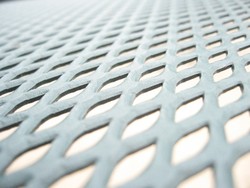The Life Care Solutions Group discusses the signs and symptoms that may indicate a serious problem with a transvaginal mesh or sling. “
 Many women who have received a transvaginal mesh or sling implant have experienced serious health complications after surgery. The Food and Drug Administration has issued safety warnings concerning the health risks associated with these devices, which have been implanted in thousands of women for the treatment of conditions that result in weakened pelvic floor muscles; however, some patients are still unsure of what the warning signs are that may indicate a problem with their device.
Many women who have received a transvaginal mesh or sling implant have experienced serious health complications after surgery. The Food and Drug Administration has issued safety warnings concerning the health risks associated with these devices, which have been implanted in thousands of women for the treatment of conditions that result in weakened pelvic floor muscles; however, some patients are still unsure of what the warning signs are that may indicate a problem with their device.
Women who have received vaginal mesh implants, whether they are currently experiencing symptoms or not, need to understand the risks associated with the implant and what symptoms are indicative of it failing. The medical device has been widely used in the treatment of conditions such as pelvic organ prolapse and stress urinary incontinence. The Life Care Solutions Group has outlined a list of some of the most common symptoms below that are indicative of vaginal mesh failure:
• Abdominal pain
• Bleeding
• Pain during intercourse
• Mesh erosion through the top layer of skin in the vagina
• Incontinence
• Chronic vaginal discharge
• Bladder obstruction
Women who experience these or other symptoms after receiving a transvaginal mesh implant should seek prompt medical attention for an evaluation of their condition. A number of women have been required to undergo additional surgeries to have their implants removed. Women seeking compensation for their injuries have filed numerous lawsuits against the makers of these medical devices.
The Life Care Solutions Group is available to assist women who have questions about their medical and legal options in the event that they have been injured by a transvaginal mesh or sling. The resource also has available for download a free eBook about chronic pelvic pain for those seeking more information.
Social Media Tags: transvaginal mesh, pelvic floor muscles, pelvic organ prolapse, stress urinary incontinence, chronic pelvic pain, pain during intercourse, abdominal pain,






